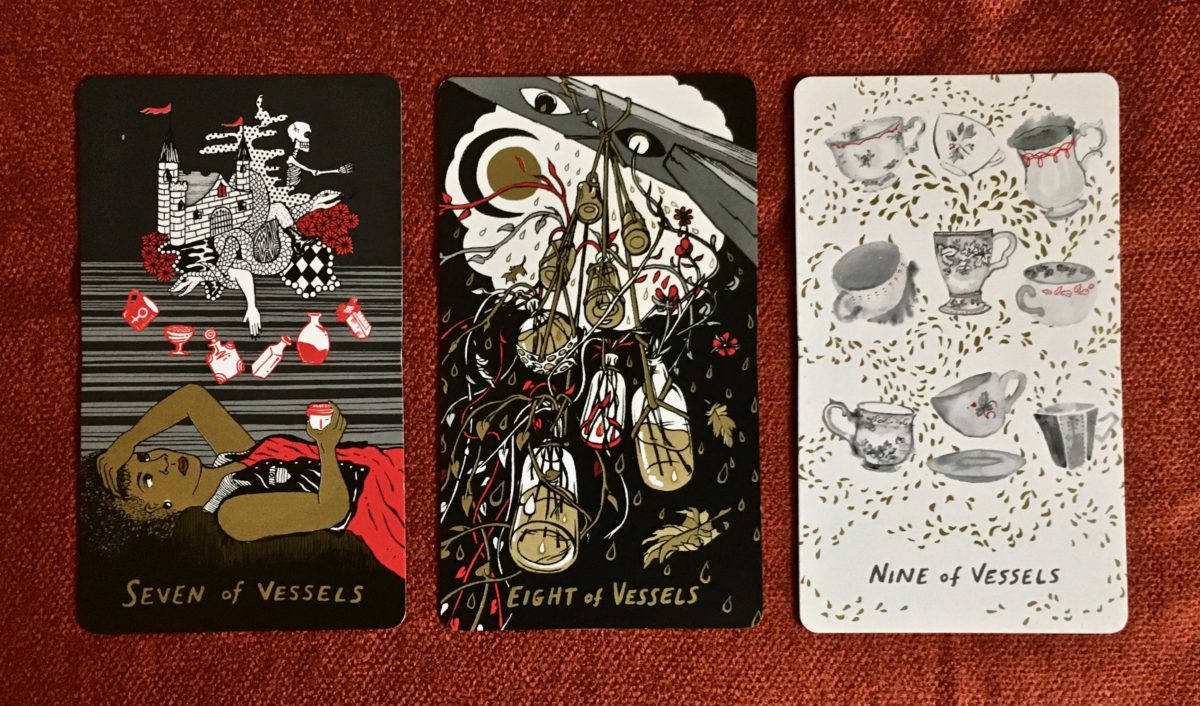I don’t use tarot to predict the future. Rather, I often use tarot as a tool for introspection, in order to get clarity on a situation and spark some ideas about what to do about it. This style of tarot reading is meant to feel empowering, and can take on a self-help vibe. It makes me feel like I’m in control of my own destiny. And isn’t that what we want?
But this inspirational style of tarot reading can have its own pitfalls. Once I was giving a reading for someone, and the Five of Pentacles came up. The card usually signifies hardship and scarcity, but often comes bundled with an implication that there is a way out, someone who might help, a resource you could tap into. I’ve seen interpretations of the card where the seeker is framed as possibly too proud to ask for help. And indeed, it feels more empowering to think that overcoming scarcity is a matter of will. But in this particular reading, I paused. I knew this person feared material scarcity because they had experienced material scarcity in their own life. Their worry made sense. It was entirely logical. Suddenly “you can find help if you are willing to ask for it” sounded less like empowerment and more like a dismissal of the seeker’s personal history and reality. Would that message be helpful, or condescending?
Continue reading “Tarot and the Underbelly of Positive Thinking”



